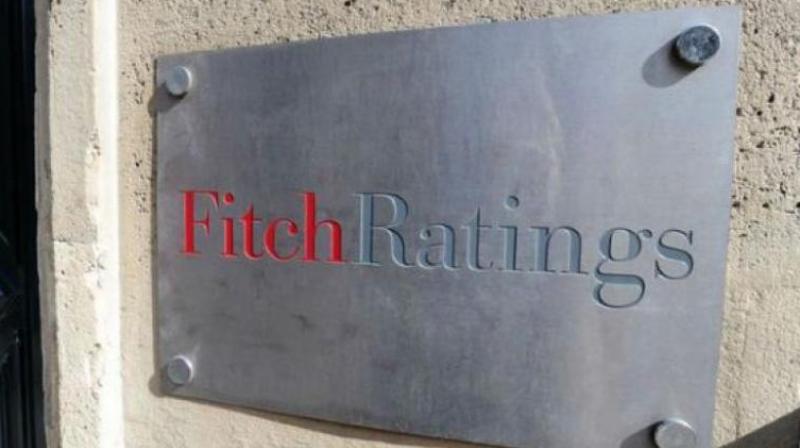Credit risk from Rs dip low: Fitch

New Delhi: India’s sovereign credit risk from the decline in rupee is limited due to strong external finances, especially low level of foreign debt, said rating agency Fitch on Monday.
However, it said the depreciation could add to existing pressures in the corporate and banking sectors.
Rupee on Monday made a strong comeback from its life-time low of 70.15 against the dollar and ended with a stellar 33 paise gain at 69.82 on heavy dollar unwinding and a robust rally in domestic equities.
Fitch said that the sharp sell-off in rupee illustrates India’s sensitivity to shifts in market sentiment towards emerging markets, and suggested there could be further bouts of pressure as global monetary tightening progresses.
Fitch said that India’s vulnerability to currency risk and capital outflows is unlikely to translate into significant pressure on the sovereign credit profile or pose external financing risks. “The current account deficit has widened as global oil prices have risen, but at 1.9 per cent of GDP in Q1FY18, up from 1.6 per cent in 2017, was still well below the 5 per cent of GDP recorded around the time of the 2013 taper tantrum. We expect the full-year current account deficit to remain below 3 per cent of GDP in the fiscal year ending March 2019,” it said.
Fitch said that foreign-exchange reserves have declined by $24 billion since mid-April 2018, but still cover 7.2 months of current account payments, providing a buffer should the Reserve Bank (RBI) feel it necessary to intervene on a larger scale.
It said that India also has relatively low foreign-currency debt. Only around 7 per cent of government debt is denominated in foreign currency, while total foreign-currency external debt, including the private sector, is equivalent to just 13 per cent of GDP, which is one of the lowest among major emerging markets, it said.
Fitch said the risk of currency pressures triggering a sudden spike in domestic borrowing costs is mitigated by the RBI’s relatively narrow focus on its inflation objective, as opposed to countering external pressures. “This is in contrast to the approach in Indonesia, for example, where the central bank has responded to currency pressures with aggressive interest rate increases. External pressures may be enough to prompt another 25 basis point hike this year, but dramatic moves by the RBI to defend the currency appears unlikely in Fitch’s view,” it said.
The agency said most vulnerable firms are likely to be those with significant foreign-currency debt, and which operate in sectors with significant imported/ commodity inputs and revenue denominated in local currency — such as the airline, telecom, auto, chemical and fertiliser sectors.
“Most Fitch-rated corporates are unlikely to be significantly affected, as those with foreign-currency debt tend to have a natural hedge from export earnings, as in the case of commodity producers.”
Fitch said the banking sector has relatively low direct foreign-currency exposure, with foreign-currency loans accounting for just 10.9 per cent of total loans in March 2018, compared with 12.1 per cent a year earlier.

